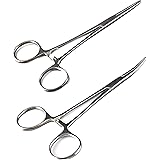Do you recall the time that you caught your first fish? Were you out with friends, on a camping trip with your dad or granddad, or enjoying some other memorable occasion? Read through this article, as it contains the necessary information you’re going to need to learn how to fish.
If you are fishing in a stream or river, cast your line upstream and allow the current to take your lure into the fishing hole. This technique will make it more likely for you to get a bite. Don’t leave your fishing line too slack.
When fishing on a boat, keep the boat’s floor as clean and uncluttered as possible. The last thing you want is to slip and fall and possibly land on a sharp object. Use a towel or mop to make the floor as dry as possible before each trip.
Most individuals use bobbers that are light when fishing through the night. Inside each lighted bobber is a bulb, which makes it easier to locate. The bobber goes up and down when the fish begins to nibble at the bait.
Determine a nice spot to catch the fish you want, then go upstream a little and cast your line. That will take your bait and hook past the fish. This will attract more fish. For areas with an obstruction, this method is very useful.
Fly Fishing
Try to go fly fishing! There are several benefits with this hobby, but remember that it’s different than other fishing. Before you try your hand at fly fishing, you must purchase an entirely new set of rods, lures and other equipment.
Check into where you can catch fish, and cast upstream of that location. By casting upstream from the location you want to fish, your bait will float down past the fish. This will attract more fish. If the fish are under an obstruction in the water, this will work doubly well.
Remain quiet and still while you fish. Loud or sudden noises can frighten fish away in no time! Move silently, whisper and keep noise to a minimum to keep the fish within your area.
Fish with responsibility. Respect nature by leaving as little impact as possible. If you are eating or drinking while you fish, be careful not to litter. Look at the regulations that state how many fish you are allowed to catch and follow them. Release the fish that are too young or small for eating.
Be wary of the different fishing laws that are in effect in the different regions you choose to fish in. Some areas may not permit you to fish in specific rivers or lakes, while others may have banned specific kinds of bait. Regulations are typically found through the fishing and wildlife departments of your state, and are often available online.

Use a sinker during colder months. By using sinkers, your bait will go to the warmer, deeper waters where fish live during the colder months. The amount and size of the sinkers that are placed on the line is dependent upon the water’s depth.
Fishing Trip
Don’t forget your basic gear when heading out for a fishing trip. The types of supplies you need will vary, based on where you are fishing. Items essential to every fishing trip include hats, sunblock, and sunglasses. In addition, if you are heading into any wilderness for your fishing trip, you should also carry a compass, flashlight, and cell phone.
Wet your fishing line before attempting to knot it. This will make the knot much stronger, as well as reducing the friction when tying a knot. Several types of knots are appropriate for fishing. Among the most popualr are the double fisherman and the clinch knots.
You might have to examine the hooks if you keep losing fish on your lure. Many people who fish do not remember that hooks that are used a lot can become blunt or twisted, which makes it difficult to catch additional fish. If you want to be sure of setting your hook cleanly and quickly every time, be sure to change out your hooks frequently.
Releasing fish is very common practice, however, a fisherman must be careful not to harm the fish by over-handling them before releasing them back into the water. Many sudden movements that the fish makes while fighting can cause it to become injured. If the fish is proving difficult to reel in, just let it go.
If you’d like to take a break during a fishing trip, it’s best to do it at high noon. Because of the angle of the sun during that time of day, fish will be more cautious and less likely to take your bait. So, take a break, have some lunch, and get back on the water when it’s not as sunny!
Don’t leave trash in water that you fish in. Waste damages our environment’s natural beauty, and it harms fish and the plant life in the water as well. Try to leave the outdoors exactly the way you found it or better, so that you can preserve the environment and fishing waters for future generations.
Take a camera with you when you go fishing to help show off your catch when you choose to return it to the water. The fish gets to go on with its life, and you will be able to show your prize catch to everyone.
The information you have learned can be shared with your family or friends. A lot of people should become impressed with what you have learned and might tag along with you on your next fishing trip. When you do this you can build bonds and relationships with your friends and family that can last for years to come.














































